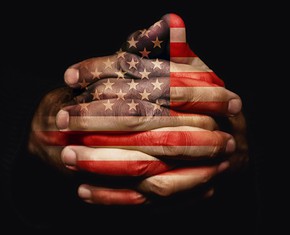The views expressed in our content reflect individual perspectives and do not represent the authoritative views of the Baha'i Faith.
The great power of modern medicine to heal and save lives is matched by the enormous expense of providing it. Therein lies a dilemma.
The progress and well-being of society depends on ensuring that all people can receive care when they need it. This all comes down to a question of ethics.
If my neighbor travels somewhere far away, there’s an earthquake, and he is crushed to death in a landslide, am I morally responsible for his death? Of course not. There’s nothing I could have done to prevent it from happening. But what if my neighbor is trapped in a burning building, and all I need to do to save his life is place a nearby ladder up to his window? If I don’t do it, if I just walk away, am I morally responsible for that? Absolutely.
That’s something to keep in mind when thinking about access to healthcare.
The Baha’i Faith teaches that consciousness of the oneness of humanity will inspire people to come to the assistance of others when they are in need:
… man cannot live singly and alone. He is in need of continuous cooperation and mutual help … The mystery of this phenomenon, the cause thereof is this: that mankind has been created from one single origin, has branched off from one family. Thus, in reality, all mankind represents one family. God has not created any difference. He has created all as one that thus this family might live in perfect happiness and well-being …
… if a member of the body politic becomes afflicted, in reality, from the standpoint of sympathetic connection, all will share that affliction since this [one afflicted] is a member of the group of members, a part of the whole. Is it possible for one member or part to be in distress and the other members to be at ease? It is impossible! Hence, God has desired that in the body politic of humanity each one shall enjoy perfect welfare and comfort. – Abdu’l-Baha, Foundations of World Unity, p. 38.
From the dawn of humanity until fairly recent times, health care was not expensive—but it wasn’t very effective, either. If someone came down with a serious infection, there might be some herbs that would help, or some changes in diet that might assist the body to fight the infection. If a patient lost an arm or a leg in a traumatic amputation, doctors could sometimes clean it up afterwards. But there wasn’t any hope of getting an artificial limb; not like anything we’d see today.
Modern healthcare is quantatively different. It can do much more, including procedures, treatments and cures that would have been seen as miraculous in the past. However, that advancement comes at a high price. Invasive surgery, long hospital stays, highly specialized drugs, modern imaging and other advanced tools give patients far better chances for full recovery and long, healthy lives than older methods did.
Modern healthcare is an amazing thing. But the systems devised to help people pay for it are remarkable too. Typically people will go months or even years without needing medical care. Then, in the rare unpredictable moments when they do need it, the cost will likely far exceed the amount of money in their wallet or bank account. At the scale of the individual, this seems like an impossibility—but when dealing with millions of people those wide fluctuations are smoothed out. At any given time there’s always a relatively small number of people receiving expensive treatment.
When massive numbers of people pool together a reasonable quantity of their resources on a regular basis, there can be enough money set aside at any time to cover those rare, expensive, life-saving treatments. The principle is the same whether we’re talking about private health insurance or a government program funded through taxes. By doing something together, in unity, a mass of people can be far more effective than if they acted in isolation. That’s the whole underlying theory behind insurance—that we all take care of each other in a civil compact, an agreement to pool our resources for the good of all.

This is why the difference matters so much between my neighbor dying in a landslide and dying because I didn’t bring a ladder. Before modern medicine there were many illnesses and injuries resulting in almost certain death that are imminently treatable today if—and it’s a big if—there is someone or something to cover the bill once it’s all over. If there isn’t, then society might employ some means to withhold care from those who are unable to pay. This is a matter of life and death. Mass participation in the pooling of resources is necessary to guarantee care.
Decisions made on behalf of an entire society that undermine the pooling of resources—for example, through private insurance markets or taxpayer funded programs—can have deadly consequences for those in dire need of care. An appreciation for the dynamics of this situation carries with it an awareness of the oneness and interconnectedness of all people.
When healthcare was inexpensive and ineffective it was easy to turn a blind eye to the medical bills of others. What was available was relatively cheap, and much of the time there wasn’t anything doctors could do anyway. Today, things are different. In many places throughout the developed world, outstanding treatments are available to those who need and seek them. But if we fail as a society to provide them care, we collectively carry the responsibility for what befalls them.
Of course, this brings up another issue—how can we extend this concept of a civil compact beyond the borders of just the developed nations to the population of the entire planet? From a Baha’i perspective, that’s the goal of this new era—to unify the world and eliminate the extremes of wealth and poverty that leave so many people at the mercy of their lack of resources.
People are waking up to this. They’re becoming more aware that in order to have a prosperous and happy society we must set aside estrangement and look upon each other with the light of oneness.
















Comments
Sign in or create an account
Continue with Googleor